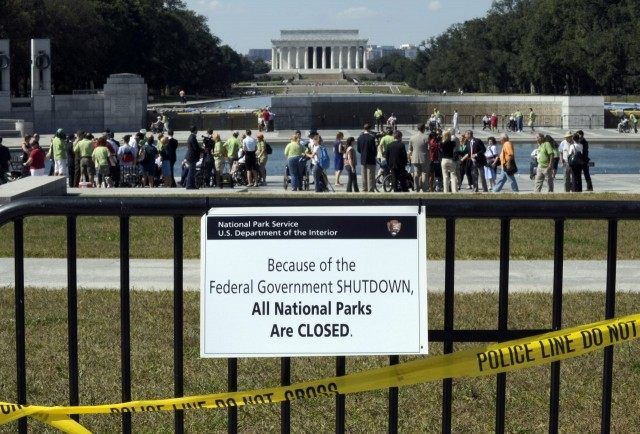Good negotiators are guided always by this question: What, if any, is the ‘best alternative to no agreement?’ Sometimes, a negotiator walks away because he believes that the best possible agreement with the other side is worse than no agreement.
For most congressional Republicans, however, any agreement is better than no agreement when no agreement means a government shutdown.
Congressional Republicans have rendered themselves impotent. They have convinced themselves that they must avoid a government shutdown at all costs. Congressional Democrats know that. With support from the mainstream media, therefore, Democrats are always able to spin a government shutdown as the fault of Republicans.
If you absolutely must have an agreement, you automatically have a very weak negotiating position. You believe you have no choice but to take the best deal you can get. When you are willing and able to walk away from a negotiation and the other side knows that, however, you will get a much better deal.
Senate Minority Leader Chuck Schumer (D-NY) has made it clear that Democrats will use the threat of government shutdowns to block all of President Trump’s proposals that got him elected—except, maybe infrastructure spending. Even without a shutdown, however, Senate Democrats can and will block the most important parts of the President’s legislative agenda through filibusters.
President Trump knows Schumer well from past dealings. So he sees how Schumer plays chess while congressional Republicans play checkers. But will Donald Trump allow bumbling Republicans to continually snatch defeat from what could be a victory of historical proportions?
The difference between good negotiators and great ones is that Great Negotiators disrupt the negotiating playing field. They see options others don’t. They use jujitsu more than boxing.
The threat of a government shutdown may immobilize most congressional Republicans. But this President has repeatedly demonstrated that he has the street-smarts to contradict conventional wisdom and convert weaknesses into strengths. But how do that with a government shutdown?
Recall the summer of 2011 when Republicans were threatening a government shutdown over raising the debt ceiling. Republicans were sucker-punched by the media. The airwaves blasted a drum-beat about an impending default on our national debt. Not even Fox News exposed the lie by Obama’s Treasury Secretary who claimed that default was an actual possibility.
If default was a real possibility, why was our largest foreign creditor at the time, the Chinese government, unperturbed? Reporting by the Chinese official state television network, CCTV, lacked the hysteria of the American media. As the deadline for a possible shutdown drew near, I watched while in Hong Kong the English-language version of CCTV. The news anchor simply reported that the U.S. would undoubtedly make its scheduled interest payments regardless of whether the debt ceiling was raised and the government shutdown. He stated the simple truth that President Obama would then have to prioritize how to spend the remaining funds.
After the Republican failure of nerve in 2011, Chinese leadership concluded that the U.S. was incapable in putting its financial house in order. While the financial establishment in the U.S. cheered the Republican capitulation, China’s credit rating agency, Dagong Global, immediately downgraded American debt.
Neither of the Republican shutdowns in 1995-96 (President Clinton over the budget) and in 2013 (over Obamacare) forced the presidents to cut federal spending. President Trump, on the other hand, wants to cut or eliminate funding for a number of federal agencies and programs. But as President Ronald Reagan learned, it has become almost impossible to cut whole departments or programs.
Without a filibuster-proof Senate, and probably not even then, President Trump has virtually no chance of getting Congress to agree to eliminate any departments or programs. But a failure of Congress to agree that forces a government shutdown offers President Trump probably the only way to accomplish the major changes he is proposing.
A government shutdown would put President Trump in a different posture than that of President Nixon who impounded federal funds. Nixon’s attempt to control the budget lost in different federal courts which ruled the President lacked the constitutional power, in the absence of statutory authority, to refuse to spend funds appropriated by Congress.
In a shutdown, however, the President could not spend on discretionary programs and the federal courts could not force him to do so. A long-enough government shutdown would trigger the Anti-Deficiency Act which prevents the Executive Branch from spending except on “essential services,” including the military. Social Security payments are protected through separate legislation.
President Trump’s need for a win on tax reform and possibly health care makes a government shutdown at this time unattractive. But if he is to prevent Senator Schumer from blocking meaningful change in Washington, President Trump will likely find it necessary at some point to exploit the benefits offered by a government shutdown.
Dr. Baker is Professor Emeritus of Law at Louisiana State University Law School.

COMMENTS
Please let us know if you're having issues with commenting.